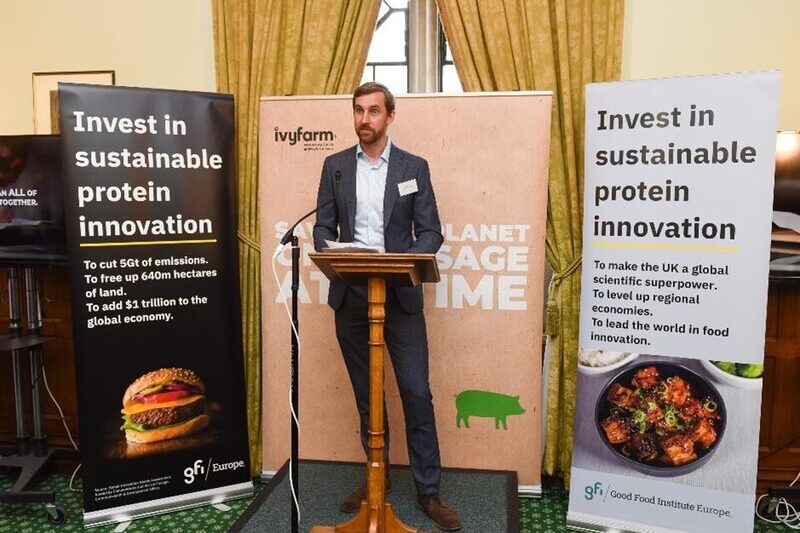Ivy Farm and the Good Food Institute Europe make the case for cultivated meat innovation


The cultivated meat sector has the potential to contribute up to £523m in tax revenue and provide £2.1bn to the UK’s economy by 2030.
Image: Ivy Farm Technologies
Cultivated meat start-up Ivy Farm Technologies and the Good Food Institute Europe (GFI) have laid out the need for a more collaborative regulatory process, and greater investment in research in the UK’s cultivated meat sector, to “avoid missing out on its economic and environmental benefits”.
At a recent Parliamentary event, MPs and peers from across all parties, attended to learn more about the science and discuss the need for an enabling regulatory framework so Britain can assert itself as a ‘world-leader’ in the burgeoning alternative protein sector.
Guests at the event, which was hosted by Anthony Browne (Conservative MP for South Cambridgeshire), heard from Ivy Farm co-founder Dr Russ Tucker (pictured above) and Elena Walden, policy manager at the Good Food Institute Europe, about cultivated meat’s “potential to be a gamechanger, for the climate, for food security and for the UK economy”.
The cultivated meat sector also has the potential to contribute up to £523m in tax revenue and provide £2.1bn to the UK’s economy by 2030.
Research by Oxford Economics suggests the industry can also create almost 16,500 jobs, including 8,300 highly skilled jobs over the next decade.
In stressing the benefits of supporting the sector, Dr Tucker said without the regulatory framework, “the UK is in danger of being left behind or worse still, UK companies will be forced to set up abroad”.
Elena Walden, policy manager at the Good Food Institute Europe, further stressed the importance of the need for greater investment in this space: “It’s impossible for the UK to reach net zero by 2050 without addressing emissions from our food system. But there’s no need for ministers to impose restrictions on what people eat. Cultivated meat can deliver the meat people want with a fraction of the environmental impact, while freeing up land for more sustainable farming, and creating green jobs across the UK.
“But to realise these benefits, the government must invest in open-access research to accelerate progress and ensure our world-leading universities are at the forefront of sustainable protein science – just as they did with renewable energy.”
Related content
Source: foodanddrinktechnology.com

